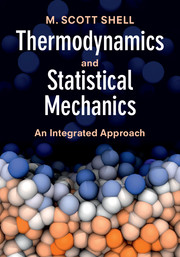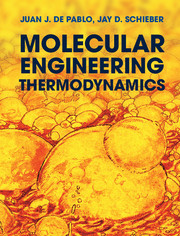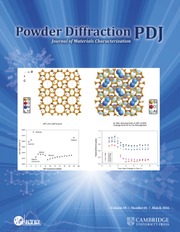Thermodynamics and Statistical Mechanics
Learn classical thermodynamics alongside statistical mechanics with this fresh approach to the subjects. Molecular and macroscopic principles are explained in an integrated, side-by-side manner to give students a deep, intuitive understanding of thermodynamics and equip them to tackle future research topics that focus on the nanoscale. Entropy is introduced from the get-go, providing a clear explanation of how the classical laws connect to the molecular principles, and closing the gap between the atomic world and thermodynamics. Notation is streamlined throughout, with a focus on general concepts and simple models, for building basic physical intuition and gaining confidence in problem analysis and model development. Well over 400 guided end-of-chapter problems are included, addressing conceptual, fundamental, and applied skill sets. Numerous worked examples are also provided together with handy shaded boxes to emphasize key concepts, making this the complete teaching package for students in chemical engineering and the chemical sciences.
- Explains molecular and macroscopic principles in an integrated, side-by-side manner, so students develop a deep and intuitive understanding of thermodynamics
- Emphasizes concepts, simple models, and basic and universal physical behaviors of different systems, enabling students to rationalize physical behaviors and build models of real systems and processes
- Includes well over 400 guided, often multi-step end-of-chapter problems that address conceptual, fundamental, and applied skillsets
Reviews & endorsements
'This textbook presents an accessible (but still rigorous) treatment of the material at a beginning-graduate level, including many worked examples. By making the concept of entropy central to the book, Professor Shell provides an organizing principle that makes it easier for the students to achieve mastery of this important area.' Athanassios Z. Panagiotopoulos, Princeton University
'Other integrated treatments of thermodynamics and statistical mechanics exist, but this one stands out as remarkably thoughtful and clear in its selection and illumination of key concepts needed for understanding and modeling materials and processes.' Thomas Truskett, University of Texas, Austin
'This text provides a long-awaited and modern approach that integrates statistical mechanics with classical thermodynamics, rather than the traditional sequential approach, in which teaching of the molecular origins of thermodynamic laws and models only follows later, after classical thermodynamics. The author clearly shows how classical thermodynamic concepts result from the underlying behavior of the molecules themselves.' Keith E. Gubbins, North Carolina State University
Product details
April 2015Adobe eBook Reader
9781316121146
0 pages
0kg
96 b/w illus. 13 tables 438 exercises
This ISBN is for an eBook version which is distributed on our behalf by a third party.
Table of Contents
- 1. Introduction and guide to this text
- 2. Equilibrium and entropy
- 3. Energy and how the microscopic world works
- 4. Entropy and how the macroscopic world works
- 5. The fundamental equation
- 6. The first law and reversibility
- 7. Legendre transforms and other potentials
- 8. Maxwell relations and measurable quantities
- 9. Gases
- 10. Phase equilibrium
- 11. Stability
- 12. Solutions - fundamentals
- 13. Solutions - advanced and special cases
- 14. Solids
- 15. The third law
- 16. The canonical partition function
- 17. Fluctuations
- 18. Statistical mechanics of classical systems
- 19. Other ensembles
- 20. Reaction equilibrium
- 21. Reaction coordinates and rates
- 22. Molecular simulation methods.





